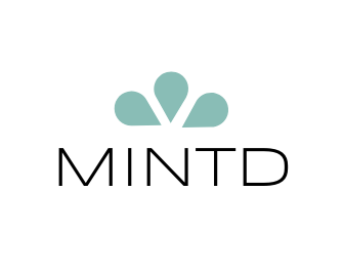Female Leadership Meets MINTD – An insight with Katrin Grunwald from The Globe Team

After 8 years of leadership experience in international team development consulting and human resources development at Airbus, Katrin Grunwald founded her own consultancy, The Globe Team, to prepare first-time leaders worldwide for their first leadership role.
Her founding idea came from numerous team development workshops during her time at Airbus. She realized that for successful team development, the first place to start is with leaders. Now, with her First-Time Leaders program, Katrin Grunwald would also like to address forward-thinking companies in collaboration with MINTD, promoting proactive personnel development as well as women in leadership positions.
Hi Katrin, you have prepared a wide variety of leaders for their roles over many years. So what do you think makes good leadership?
I think there is no one way here – a right or wrong, but I think it is much more important to be able to reflect as a leader – on yourself, your strengths and values: What is important to me as a leader? How do I want to work with my team? What are the needs of the team, for example, are they already very experienced in what they do? It may then be easier to delegate as a manager, otherwise a close management with a lot of information may be more effective. That’s why I think the match between leader and team is crucial, the leader has to be able to adapt to the needs of the team members.
You want to prepare leaders to do just that. How is the First-Time Leaders program structured?
In our community, we support young talents who are currently in the transition phase, from team member to the first leadership level in their first leadership position. Questions arise such as who am I as a leader? How do I want to introduce myself to my team? What will the first few weeks be like? What kind of conversations should I have? How do I tackle them? Accompanying this, we offer templates, manuals, videos and checklists for exactly this transition period, in order to successfully grow into the new role during the first months. The second big element is the community or exchange with other first-time leaders, 90-minute online workshops twice a month with a coach to answer more specific questions. In addition, we offer optional one-to-one coaching with one of our coaches to really go in depth, in one-hour sessions focused on the individual situation.
Where do first-time leaders fail in practice? Is there a kind of pattern of „beginner’s mistakes“?
A typical starting situation is that people are technically highly qualified, but have never led people before. Communication issues are still completely unclear. When you are promoted, the company’s expectations also change at the same time. Suddenly, performance is no longer assessed purely in terms of technical expertise, but in terms of how successfully you can enable a team to perform well in a positive atmosphere. In this context, the biggest challenge I observe is to recognize this mental switch. From the expert role to an interactive and communicative leadership role.
Let’s move on to the topic of gender. What is the percentage of women in your program and do you think women lead differently than men and if so, in what way?
Actually, more women (about 80%) sign up with us than men. I don’t necessarily think that women and men differ in leadership style, but that men and women approach challenges differently in general. The issue of „I’m working in a new field and I don’t have much experience yet“ leads more to the conclusion for women to get support. Of course, this fulfills a bit of the stereotype and mindset that it’s okay if I don’t know something. Knowing this should create proactive structures to accommodate this observation.
So what would have to happen to get more women into leadership positions?
This has a systemic as well as personal component. I think as a company, taking the systemic view as a foundation is highly important. Society needs to be aware of how important diverse teams are in the working world. In 2009, as a trainee at Airbus, I already worked with a study by McKinsey, which clearly shows that diverse teams show higher performance. You don’t achieve that with just one „quota woman“ at stock market-oriented companies. Now it is 2023 and we are still thinking about it! If the reason better performance doesn’t pull, then hopefully the skills shortage will lead to a faster change in thinking. I’m happy to support two initiatives that empower women in professional and leadership careers with The Globe Team and MINTD.
